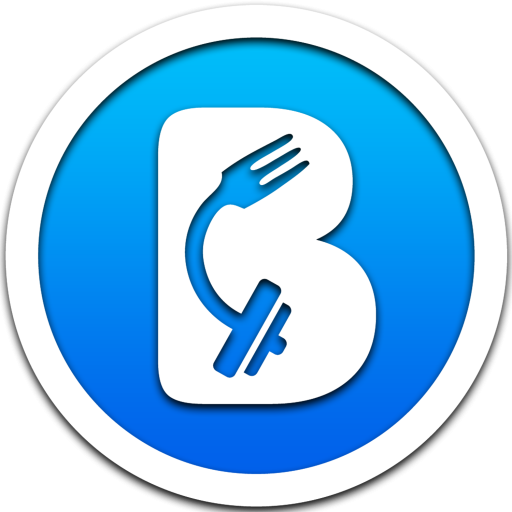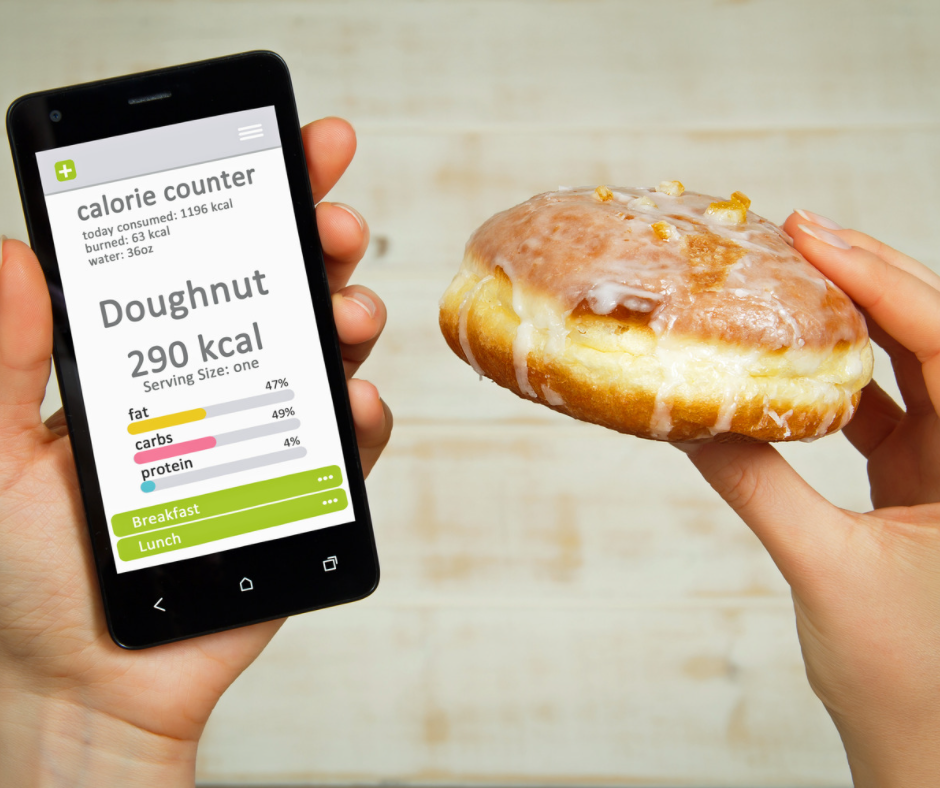How to Eat Without Feeling Guilty & Still Sticking to Your Goals
At the time of the recording for this podcast, Matt and Nick were getting ready to host a Holiday party for their friends. Consequently, the topic for this episode is centered around the festivities as well! The idea came from a question on the Bent On Better Facebook page asking, “How do I prepare for overindulging, particularly over the Holidays?” Our Bent On Better coaches are here to answer this question and explain how certain food can affect our bodies.
Part of our program here at Bent On Better is the forever-friendly nutrition coaching that comes with the idea that dieting and diet culture will mislead you. In the short term, they won’t give you success, and that success isn’t going to stay in the long term either. That’s the story most of our members tell us when they express how these diets have turned losing and then gaining weight into a never-ending cycle.
The Effects Of Diet Culture
Some of the common diets or diet trends our members have tried out are: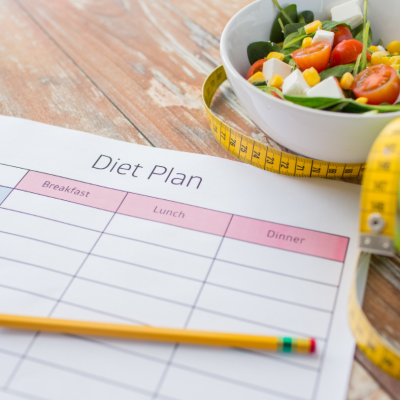
- Keto
- Paleo
- Intermittent fasting
- Atkins
- Weight Watchers
- Shakes/Cleanses (i.e. Herbalife, Beach Body, etc.)
And for these diet trends, Matt has one thing to say, “to each his/her own.” Matt also explains that every diet existed because someone tried it, it worked for them, and then they told someone else about it. We recognize that there are programs out there that are built around the idea of scientific research. But unfortunately, so many people think they absolutely need to diet or that they need to follow a strict meal plan to get results. And that isn’t always the case.
Let’s say the diet plan works well for you, and you get to your goal, you celebrate, and then weeks, months, and a year go by, and you notice that the hundred pounds that you’ve worked so hard to lose are back and sometimes even more so than what you’ve lost. When we go through a strict meal plan and then hit our goal, we tend to get a bit more relaxed and return to our usual routine before the diet. We don’t notice this drastic change in our bodies because we tend to look at ourselves in the mirror so much that we don’t see the tiny changes it goes through daily.
At Bent On Better, we encourage everyone to take pictures of themselves, even if it’s just to document their journey and to show how far they’ve come. That way, you can see the changes your body goes through yourself, and you can then identify whether or not what you’re doing has made a lasting effect on you and your goals.
Understanding Your Baseline For Nutrition
When it comes to nutrition coaching, Bent On Better works around what fits your needs, and with that comes covering your bases.
- Hydration – Water is an essential nutrient that your body has to consume. If you’re not already drinking 64 ounces of water, at a minimum, every single day, then that is where you need to start first. Your goal is to drink half of your body weight in ounces of water per day.
- Protein – Protein should take up about 20-35% or maybe even 40%of your diet, depending on your goal. We don’t recommend going over 40% because that can be too much.
- Fat – We recommend getting around the same rules as consuming protein.
- Carbohydrates – Whatever is leftover should be reserved for carbohydrates. Our bodies can store carbs so easily as it is considered the normal form of energy. In a more technical idea, carbohydrates are broken down into glucose and stored as glycogen– in simpler terms, carbohydrates can be broken down into sugar for energy.
Setting Up An Average
Let’s take this mathematically; you need to create an average to know where you need to be in your nutrition. For example, think of yourself as a perfect 10– with 10 being your peak when consuming healthy food. To maintain your body, you need to stay at 10 with your eating habits.
If you’re a 10 every day for a week, that will make you a 70. Divide your total by the number of days in the week, giving you 10 as the average for your body to stay the same.
Where this goes wrong is that most people will operate on a deficit. They will be an eight from Monday to Friday, save up points and then celebrate on the weekends and get themselves up to a 15 on average. If you calculate your average for the week, you’ll still be a ten, which means nothing has changed in your eating habits, which will mean little to nothing will change in your body composition in the long run.
We recommend that our members who are at the gym three days a week get their eating habits to a 9 or a 10 and avoid running on a deficit. That way, they have enough energy to do their workouts, recover, and see progress. We believe in seeing success in the week-by-week average instead of the day-to-day win or loss.
Preparing For A Holiday Feast
You want to plan out your week around the thought that you might overindulge during the holidays. If  you know that an event is coming up, you want to make sure you’re eating in preparation instead of punishing yourself throughout the week.
you know that an event is coming up, you want to make sure you’re eating in preparation instead of punishing yourself throughout the week.
If Thanksgiving is on a Thursday, try eating enough to sustain yourself during your training program and recovery. Do this from Monday to Wednesday, but maybe eat a little less than what you’re used to. When the holiday comes up, you can enjoy yourself and indulge in good food but always remember to avoid going overboard.
Remember not to starve yourself in the days coming up to the holidays; understand that while eating food, you are still getting nutrients but in different ways.
Alcohol’s Effects On Adults
Alcohol is another component of calories for adults. It can contain 70 calories per gram, slows down our metabolism, has to be processed by our liver, and has a lot of calories to break down. When overindulging with alcohol, remember to have water equal to how much you’re drinking for the night. Try to hydrate before and after drinking alcohol to calibrate your body to ensure you don’t suffer for days afterward.
“If you are looking to change your life and make a difference in your (body)
composition, but you still have alcohol and unhealthy eating habits in your rotation, it’s time to pump the brakes and actually live the life that you want. And if you’re not losing weight because you keep consuming that alcohol enables you to unwind from a stressful life, that’s okay, but just know you need to live with that. You cannot blame the fitness program or your eating habits if alcohol is that one factor–and it tends to be for most people.” – Matt April
Calorie Counting And Food Scales
Calorically speaking, to see changes, you need to have either 250-500 calories over or under, depending on your goal.
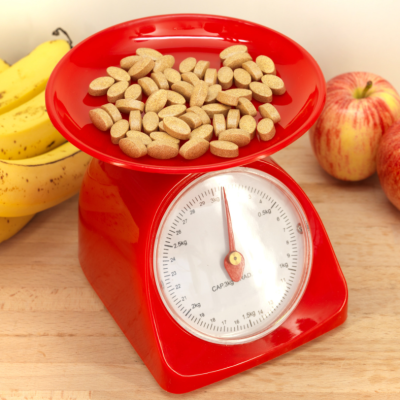 A good tool for counting calories is the trusty food scale; you can get your own for around 15 to 20 dollars. For example, you take your food scale and measure the normal serving of your favorite nut butter. A serving of nut butter tends to be 28 to 30 grams which equates to 180 to 200 calories. A mistake people make is thinking that a serving means whatever amount they put on a sandwich, and it turns out to be one and a half or two servings of peanut butter instead. It’s these little things that make a food scale a good investment to ensure you’re getting the right amount of calories for your program.
A good tool for counting calories is the trusty food scale; you can get your own for around 15 to 20 dollars. For example, you take your food scale and measure the normal serving of your favorite nut butter. A serving of nut butter tends to be 28 to 30 grams which equates to 180 to 200 calories. A mistake people make is thinking that a serving means whatever amount they put on a sandwich, and it turns out to be one and a half or two servings of peanut butter instead. It’s these little things that make a food scale a good investment to ensure you’re getting the right amount of calories for your program.
Satiating A Sweet Tooth
Our coaches, Matt and Nick April, both admittedly have a sweet tooth. They look at it as an effect of getting candy and sweets as a reward when they were younger. Matt even looks back to when he ate Pop-Tarts and Slim-Fast Shake for breakfast, which he now describes as a terrible breakfast.
This all ties up to over-indulging because we recognize that we’re all human, and this chemical addiction can happen to anyone, but it all comes down to making sure you have moderation with the food you eat. To learn more about chemical addiction to sugar, Matt April recommends listening to this short Ted-Ed Talk by Nicole Avelana, How Sugar Affects The Brain.
One “trick” Matt suggests for people who have a sweet tooth like him is that the best time to satiate your sweet tooth is right before or immediately after a training session. We believe one of the best pre-workout or post-workout snacks has carbs or sugar, even if it’s just to satiate your cravings.
Conclusion:
Even when we get caught up counting calories, sometimes, when we’re talking about weight loss specifically, it’s important to understand that the things we consume daily will affect our bodies in different ways. Take the effects of cutting off alcohol as our coach Matt April explained, “The cool thing about it is that it compounds. So if you also cut (alcohol) out, you’re going to start to feel better, so you actually eat better, you’ll get to move better– everything just starts to compound.”
It’s okay to over-indulge. “Everything in moderation” is a phrase frequently used at Bent On Better.
While we recognize that everyone is human, the unpleasant truth is that no amount of effort can compensate for a poor diet. So if you’re overeating and trying to lose weight, you won’t be able to lose weight the way you can if you’re not eating the way you should.
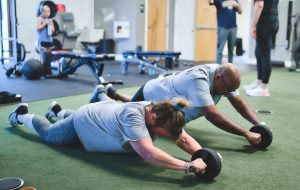
“So when you over-indulging, when you’re eating, when you’re being strict with your diet– just know that it’s okay, give yourself that permission, it’s okay to over-indulge. It’s okay to eat the foods that give you joy and make yourself happy, but if you’re doing it all the time and you’re expecting to see a change, that’s where we fall off, that’s where we disconnect. That’s where I’m going to tell you, ‘It’s time to make a change, or it’s not going to work, and I’m not going to be able to help you,’ and it hurts you, it hurts me, it hurts us all.” – Matt April
Coach Nick also added that just because you want this particular result and believe that you can achieve it by following a diet that isn’t ideal and then attempting to squeeze in as much exercise as possible to compensate, is not going to work. Even if it just works for a few weeks, it will eventually catch up.
So if you’re eating on the holiday or in any event where eating is the center of activity, and you end up over-indulging, the best thing to do the day after is to get right back into what you think is a successful healthy eating plan but emphasizing getting your baseline which is hydration, protein, and then vegetables with your protein, fats, and carbohydrates at the very end. If you’re hungry, reach for water and protein first. For protein sources, you can check out this blog post. For healthy snacks and meal recipes, visit here.
Watch the Video Here:
